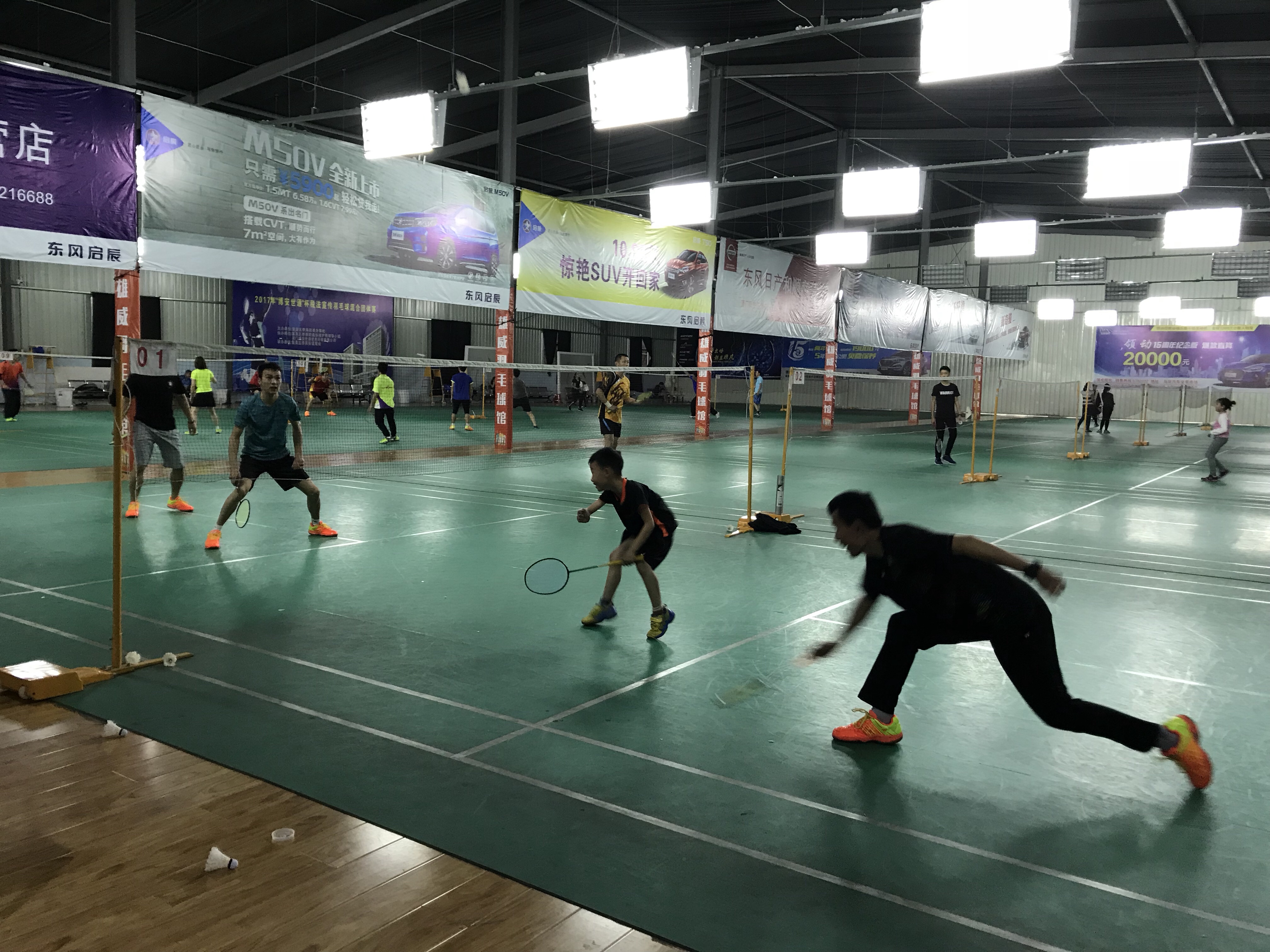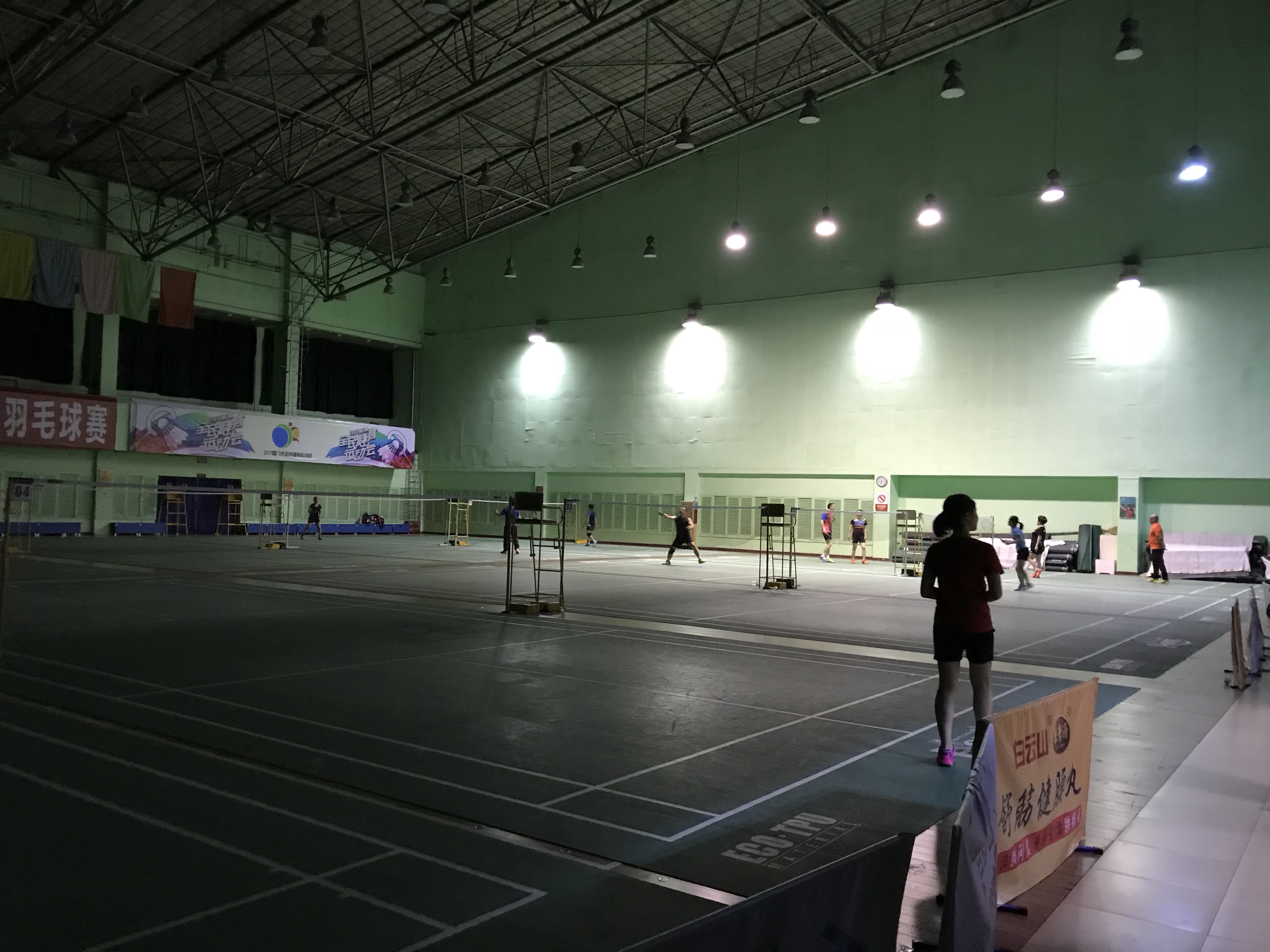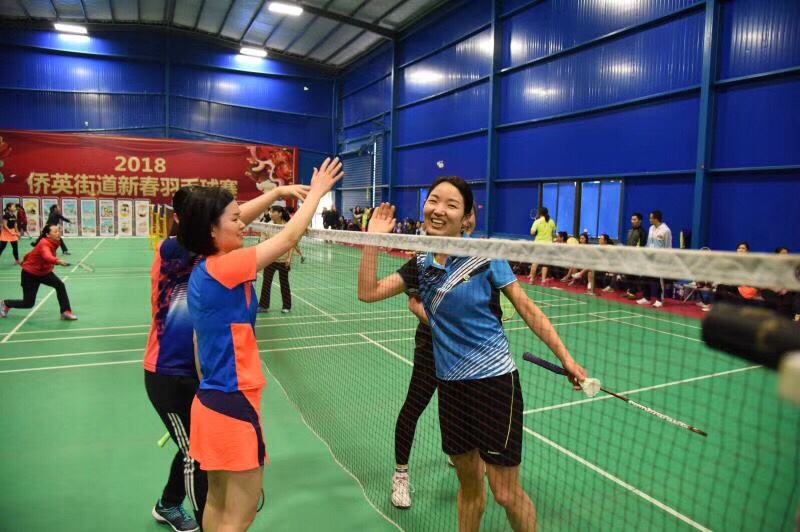I recently read an article a friend sent out on her wall from Forbes titled “10 Things You Need To Stop Doing If You Want To Be A More Effective Person.” But as I was reading it I realized that it was actually very appropriate for a badminton players. (Can I turn any topic into a badminton topic? Yes. Yes I can.) So I want to re-write the article from a badminton point of view. (All bullet points are taken directly from the article, written by Brianna Wiest but the justification are my own writing and thoughts.)
Bullying Yourself
No matter how critical your coach or club players might be, NO ONE can come close to what goes on in your own brain. You miss a shot and you call yourself stupid. You have a bad night and you go home feeling old, weak, useless. You play a great game but play one point poorly then obsess only about that one point. You go into a competition and talk yourself into losing before you even begin.
Being critical of ourselves is natural but on the badminton court it is essential to overcome your “inner critic.” A good rule is if you wouldn’t say it out loud to a partner, don’t say it to yourself. Are you stupid because you missed that shot? No. Maybe you weren’t paying attention, maybe you held the racket wrong, but you weren’t stupid. You just made a mistake. You’re learning. You know you shouldn’t bully others, so why is it okay to bully yourself? Stop it.
Staying Bitter
We all know how important the mental game is, and getting over loss and failure, and not feeling bitterness about losing, is part of that. Bitterness can come about not when a better player wins over you, but when a WORSE player wins regularly. (“It’s not fair. He’s younger than me so he wins, not because he’s better.”) Or when you get third in a competition you know you should have won. Or when a umpire makes a bad call.
But to improve you gotta get over that. You gotta realize that like life, badminton often isn’t fair. So you can’t spend games fuming or stay up nights replaying scenes over and over in your head. To win the mental game of badminton you need to focus on the good and let go of unfair things that are out of your control.
Confusing Comfort for Happiness
I know some players who are decent, but not gaoshou (experts). They play in groups where they are the top player and spend night after night happily winning and bragging about how good they are. Then they play with players who are slightly better and are shocked that they lose. Or they play for years in the same group and complain they aren’t improving.
To really improve you have to stop being happy with comfort. You need to be uncomfortable, you need to be unhappy. You have to spend night after night losing and as you begin to get better, as you begin to win more and more, you need to find new players at a new level so you can lose again. For improvement you should feel uncomfortable with comfort. Comfort means it is too easy and you aren’t learning or challenging yourself. For the serious player, happiness comes not from winning but from improving.
Backing People into Corners
Okay, this one doesn’t really apply to badminton. Moving on…
Valuing Too Many Opinions
This is one I have ranted about a few times recently. When you are a beginner you have so much to learn that pretty much everyone can teach you something valuable. But as you advance you need to be very careful who you listen to. Everyone has their own methods and thoughts and if you try to listen to everyone you are going to end up with a schizophrenic style. You need to follow your own training (from your coach or a trusted higher level friend you have decided to emulate) and block out the opinions of others. It can be hard to ignore others, especially when you are experimenting with a new style or technique and might mess it up for awhile before you really get the hang of it, but it is critical for your game and for your own self confidence. You need to trust that your thoughts and your instinct are correct and you don’t need to rely on the advice of others to play a good game.
Accepting Excuses as Justification
Boy, oh boy is this one easy to do. “I had a busy day so of course I’m playing bad.” “I’m older than him, so of course I lost.” “I just played 6 games in a row with no break so I’m more tired than everyone else.” “I haven’t played in awhile.”
We can come up with an excuse for anything, can’t we? But results are results no matter what the reason. And using excuses as a justification is just deluding yourself. No umpire will give you a game because, “normally I would have won but I didn’t sleep well last night” so why even bother saying it? You lose, you lose, no matter what the reason. I found myself making excuses just to try to make myself feel better, or to justify myself to my partner so they wouldn’t get upset with me. But I realized how deluded that was, I was hiding behind the excuses instead of accepting the inevitable. So I now have a deal with myself: no excuses. Accept the loss graciously and don’t try to talk my way out of it.

Older than everyone? Younger than everyone? Stop justifying it and just play.
Believing Everything You Feel
More in the mental game, this has to do with self worth and confidence. We’ve all had the soul crushing days where you go home and not only question your playing ability but your entire existence as well. But don’t believe those negative feelings. You aren’t stupid, you aren’t slow, you aren’t wasting everyone’s time, and you aren’t an embarrassment to yourself. That’s just how you feel when you have a bad day. It’s your feelings, not your being. Don’t get confused.
Overthinking Productivity
I’m gonna change this a little to “overthinking the game.” Have you ever been walking and then suddenly think about walking? Really thinking about which muscles you are moving, how your bones are connected and what motions each leg goes through in the course of a stride? Try it. I bet you will suddenly forgot how to walk. When we think about it, really think about it, it becomes much more difficult.
That’s what badminton is like. When you’re training you focus on every little movement; where is your shoulder, how high is your arm, where is the racket head, what grip should you have, and where should your feet be? But when you play a game, or a competition, you have to let all of that go. You have to enter “the flow” which is the place of no thought where your body responds almost automatically based on your training. While it is a necessary part of training, overthinking can kill your game and you need to avoid it. (Although if you want to be sneaky you can sabotage your opponents game by making them overthink themselves. Just say something like, “You have a great drop today, what are you doing differently?” and they will focus too much on the mechanics behind it, instead of doing it naturally, and mess up.)
Caring About Everything
I used to care about winning and losing. I used to keep a running tally of how many games I won versus lost in one nights play. I thought I could use it as a measure of my improvement. But I’ve long given that up, because I’ve realized who wins is irrelevant. It’s about how you play that is important.
Like playing with my coach. I sometimes hit a shot out and he high fives me and says I did really good. Other times I win and he criticizes me for poor play. Because his goal is to make me a gaoshou he focuses solely on my technique. When I hit a shot out, but I hit the correct shot, or use the correct technique, he is pleased. I’ll get it next time but at least I knew what to do. But if I have poor thinking, or poor technique he is upset even if it results in a win. “You didn’t win because you played well,” he’ll say sternly. “You won because your opponent was worse. You won’t go far playing like that.”
You have to let go of your ego, and let go of things like “winning” and “losing” because it’s too easy to get caught up in that. You need to focus on what’s important: improving your game.

Playing the Victim
As a foreign female player, this is a big problem for me. “They don’t want to play with me because I’m a girl,” or “I’m a foreigner so I’m left out of a lot.” Like making excuses, playing the victim comes naturally.
But you gotta get over that as well, and think of some advantages you have. Yes, I am inherently weaker than men, so what do I need to do? I need to play a tighter game, I need to play a smarter game. Yes, I’m a foreigner so I’m left out of things so what do I need to do? I need to go up to people, talk to them and never turn down an opportunity. (As a result of my hyper out-goingness I now how more friends in the badminton community than most people who have lived here a short time.) We all have natural disadvantages. Age, sex, body type, but there are always ways around it. You just have to figure it out.
Seeing Challenges as Finalities
I like what the original author of this article wrote and it works with badminton without changing a thing. So here it is:
Effective people are not intimidated or swayed by setbacks. Rather, they understand they are simply part of the process, and are to be expected. Rather than seeing challenges as defeating finalities, they gauge what can be learned from them, how the pain can improve their character in the long-term, and how they can respond in a way that will ensure the situation doesn’t arise again. Their objective is not to ensure that nothing ever goes wrong, it is to make every experience an opportunity for growth, whether or not it is comfortable.
While these 10 tips were originally made for business, you can see how easily they fit into a badminton context. Because the path to be a top player is, in many way, very similar to becoming a top business person. While there are skills to be mastered, much of the battle in both rely on your thinking patterns and how you react to outside circumstances.








I feel the same way…I think way too much about my play every night cuz im a professional badminton player and I always think im not a good player..nut thank you so much for your advice…it really helped me..
Gotta build up that confidence and shut down that inner critic!
I feel the same way…I think way too much about my play every night cuz im a professional badminton player and I always think im not a good player..but thank you so much for your advice…it really helped me..